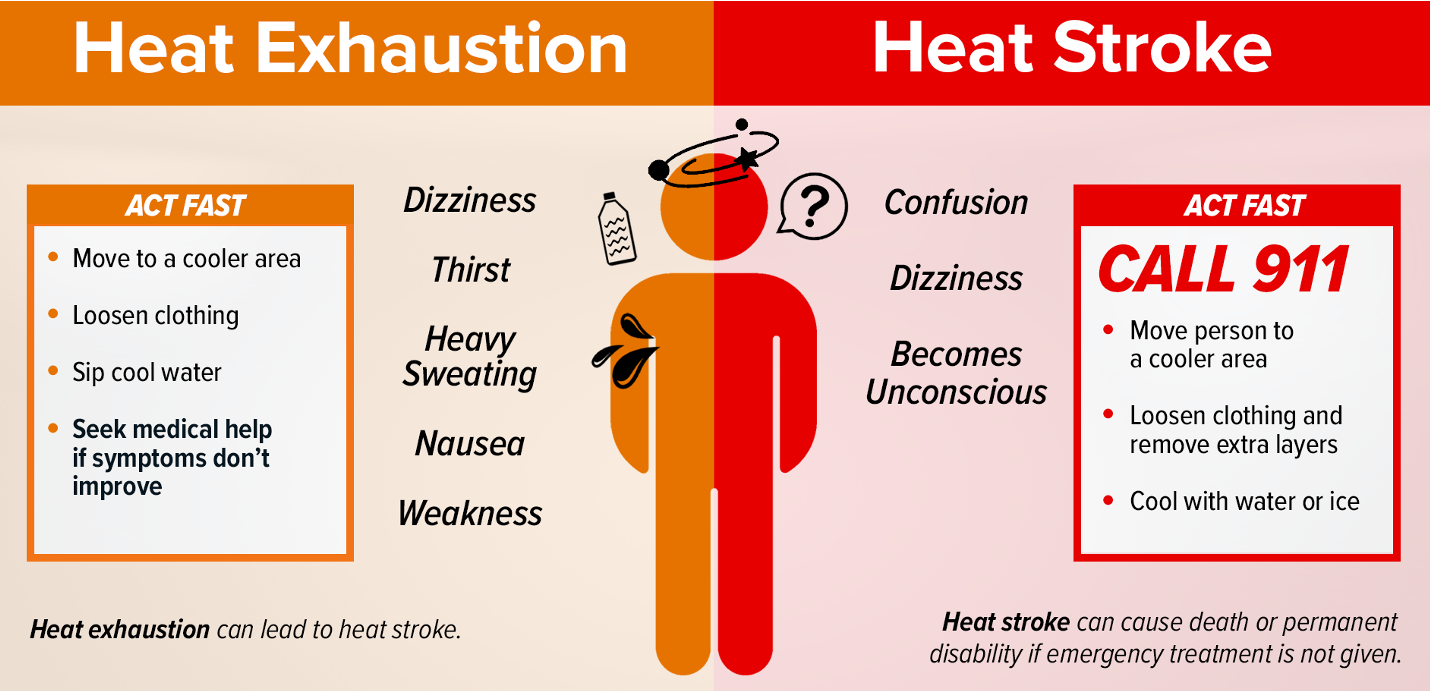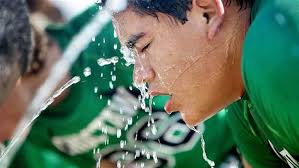The San Francisco State University engages students in a variety of ways that include outdoor activities. Activities may include camps, clinics, course work, gym class, sports clubs, research, field trips, and various other outdoor activities. Exposure to excessive heat can stress the body and lead to serious heat-related illness, such as heat rash, heat exhaustion and heat stroke. Our program to address heat-related illness is based on the CSU Student Activities Heat Illness Prevention Guide.
A person exhibiting symptoms of heat stroke is an EMERGENCY! Quick action is required to remove the person from the hot environment and begin cooling the body. Medical help must be called right away while this first aid is being provided.

Heat Illness Prevention Program for Students
The University has developed a heat illness prevention program for student activities, using the CSU Student Activities Heat Illness Prevention Guide.
This program is applicable to all student activities where students are participating in University sponsored events, as well as auxiliary operations, which may have outdoor environmental risk factors for heat illness.
This includes but may not be limited to class field trips, exercise classes, and field research. Other organizations that may be affected by this program:
Parking, Facilities Management, Campus Recreation and Wellness, Student Life, Clubs & Organizations, Special Events, Academic Colleges, Children’s Center, Housing, Support Services, and Orientation Services.
Training Access
Training on this heat illness prevention program is mandatory for university-related academic and research field activities, including gym classes, and most other outdoor activities. Faculty, instructors, and staff overseeing student activities must ensure they and their students complete this training and keep documentation for at least one year.
To access the CSU-Student Activities Heat Illness Prevention training, select the link below and log into your Canvas account. Instructors of academic courses can also add this training as an assignment if they wish.
Heat Illness Preparedness Checklist
SF State has customized a checklist to help prepare for outdoor activities in hot weather. Its purpose is to document the preparations you made for the upcoming activity to address a hot environment.
Checklist for Heat Illness Prevention for Student Activities
Note that this completing this checklist is recommended but not required for NCAA and NAIA athletics. They have their own guidelines and required documentation.
- The heat illness checklist must be filled out by the field trip or activity leader/instructor or faculty advisor whenever weather reports indicate temperatures will be greater than 80°F.
- The sponsoring department or student club is required to keep the completed checklist on file for at least one year from the event completion date.
- Check weather reports for the event or trip location.
- Fill out the checklist and prepare for the activity using the CSU-Student Activities Heat Illness Prevention Resource Guide.
- Save a copy of the signed checklist in the department files for one year past the activity date.
The purpose of the CSU Student Activities Heat Illness Prevention Resource Guide is to develop a process for assessing environmental risk factors for heat illness during student activities in order to mitigate risks related to heat illness. These guidelines apply to University, Club and Auxiliary sponsored, approved or authorized activities.
Note: This Guide is not designed to replace Heat Illness requirements as outlined in National Collegiate Athletic Association (NCAA) or the National Athletic Trainers Association (NATA).
For more information and guidance on heat illness prevention, please refer to the
CSU Student Activities Heat Illness Prevention Resource Guide
This program does not apply to NCAA and NAIA athletics, as these organizations have established their own requirements for heat illness prevention. Athletic events and activities that are part of these organizations, must abide by the guidelines outlined in National Collegiate Athletic Association (NCAA) or the National Athletic Trainers Association (NATA) documents. In addition, they must have their own program in place that follows these guidelines. University Risk and Safety Services strongly recommends that students and coaching staff view the CSU Student Activities Heat Illness Prevention training.
Online Resources
National Collegiate Athletic Association Position Statement: Exertional Heat Illness

